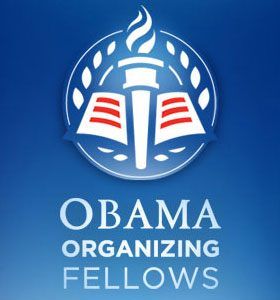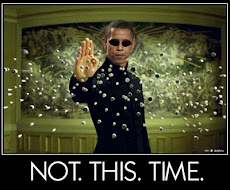Saturday, February 5, 2011
Frederick Douglass
Frederick Douglass (born Frederick Augustus Washington Bailey, February 1818 – February 20, 1895) was an American social reformer, orator, writer and statesman. After escaping from slavery, he became a leader of the abolitionist movement, known for his dazzling oratory and incisive antislavery writing. He stood as a living counter-example to slaveholders' arguments that slaves did not have the intellectual capacity to function as independent American citizens. He became a major speaker for the cause of abolition.
Frederick Douglass was one of the foremost leaders of the abolitionist movement, which fought to end slavery within the United States in the decades prior to the Civil War.
A brilliant speaker, Douglass was asked by the American Anti-Slavery Society to engage in a tour of lectures, and so became recognized as one of America's first great black speakers. He won world fame when his autobiography was publicized in 1845. Two years later he bagan publishing an antislavery paper called the North Star.
Douglass served as an adviser to President Abraham Lincoln during the Civil War and fought for the adoption of constitutional amendments that guaranteed voting rights and other civil liberties for blacks. Douglass provided a powerful voice for human rights during this period of American history and is still revered today for his contributions against racial injustice.
Frederick Douglass was born in a slave cabin, in February, 1818, near the town of Easton, on the Eastern Shore of Maryland. Separated from his mother when only a few weeks old he was raised by his grandparents. At about the age of six, his grandmother took him to the plantation of his master and left him there. Not being told by her that she was going to leave him, Douglass never recovered from the betrayal of the abandonment. When he was about eight he was sent to Baltimore to live as a houseboy with Hugh and Sophia Auld, relatives of his master. It was shortly after his arrival that his new mistress taught him the alphabet. When her husband forbade her to continue her instruction, because it was unlawful to teach slaves how to read, Frederick took it upon himself to learn. He made the neighborhood boys his teachers, by giving away his food in exchange for lessons in reading and writing.
Douglass is noted as saying that "knowledge is the pathway from slavery to freedom." As Douglass learned and began to read newspapers, political materials, and books of every description, he was exposed to a new realm of thought that led him to question and then condemn the institution of slavery. In later years, Douglass credited The Columbian Orator, which he discovered at about age twelve, with clarifying and defining his views on freedom and human rights.At about the age of twelve or thirteen Douglass purchased a copy of The Columbian Orator, a popular schoolbook of the time, which helped him to gain an understanding and appreciation of the power of the spoken and the written word, as two of the most effective means by which to bring about permanent, positive change.
Returning to the Eastern Shore, at approximately the age of fifteen, Douglass became a field hand, and experienced most of the horrifying conditions that plagued slaves during the 270 years of legalized slavery in America. But it was during this time that he had an encounter with the slavebreaker Edward Covey. Their fight ended in a draw, but the victory was Douglass', as his challenge to the slavebreaker restored his sense of self-worth. After an aborted escape attempt when he was about eighteen, he was sent back to Baltimore to live with the Auld family, and in early September, 1838, at the age of twenty, Douglass succeeded in escaping from slavery by impersonating a sailor.
He went first to New Bedford, Massachusetts, where he and his new wife Anna Murray began to raise a family. Whenever he could he attended abolitionist meetings, and, in October, 1841, after attending an anti-slavery convention on Nantucket Island, Douglass became a lecturer for the Massachusetts Anti-Slavery Society and a colleague of William Lloyd Garrison. This work led him into public speaking and writing. He published his own newspaper, The North Star, participated in the first women's rights convention at Seneca Falls, in 1848, and wrote three autobiographies. He was internationally recognized as an uncompromising abolitionist, indefatigable worker for justice and equal opportunity, and an unyielding defender of women's rights. He became a trusted advisor to Abraham Lincoln, United States Marshal for the District of Columbia, Recorder of Deeds for Washington, D.C., and Minister-General to the Republic of Haiti.
In addition to his oratory, Douglass wrote several autobiographies, eloquently describing his life as a slave, and his struggles to be free. His first autobiography, Narrative of the Life of Frederick Douglass, an American Slave, was published in 1845 and was his best-known work, influential in gaining support for abolition. He wrote two more autobiographies, with his last, Life and Times of Frederick Douglass, published in 1881 and covering events through and after the Civil War.
After the Civil War, Douglass remained very active in America's struggle to reach its potential as a "land of the free". Douglass actively supported women's suffrage. Following the war, he worked on behalf of equal rights for freedmen, and held multiple public offices.
Douglass was a firm believer in the equality of all people, whether black, female, Native American, or recent immigrant. He was fond of saying, "I would unite with anybody to do right and with nobody to do wrong."
1.Douglass, Frederick. Life and Times of Frederick Douglass. New York: Collier Books, 1962.
2.The Narrative of the Life of Frederick Douglass An American Slave electronic text.
3.Narrative of the Life of Frederick Douglass: An American Slave. Cambridge: Belknap Press of Harvard University, 1960.
4.Foner, Philip S. The Life and Writings of Frederick Douglass: Early Years 1817-1849. New York: International Publishers, 1950.
5.Foner, Philip S. The Life and Writings of Frederick Douglass: Pre-Civil War Decade 1850-1860. New York: International Publishers, 1950.
6.Foner, Philip S. The Life and Writings of Frederick Douglass: The Civil War 1861-1865. New York: International Publishers, 1952.
7.Foner, Philip S. The Life and Writings of Frederick Douglass: Reconstruction and After. New York: International Publishers, 1955.
8.Huggins, Nathan Irvin. Slave and Citizen: The Life of Frederick Douglass. Boston: Little, Brown, 1980.
9.Quarles, Benjamin. Frederick Douglass. Washington, D.C.: The Associated Publishers, Inc., 1948.
Subscribe to:
Posts (Atom)










































